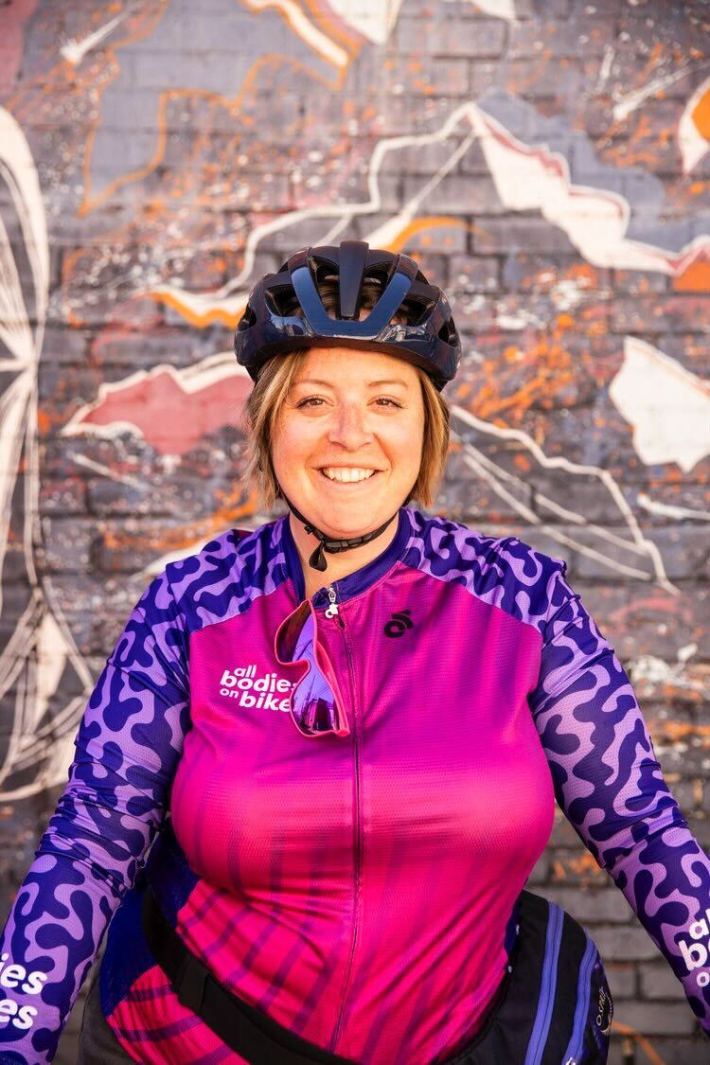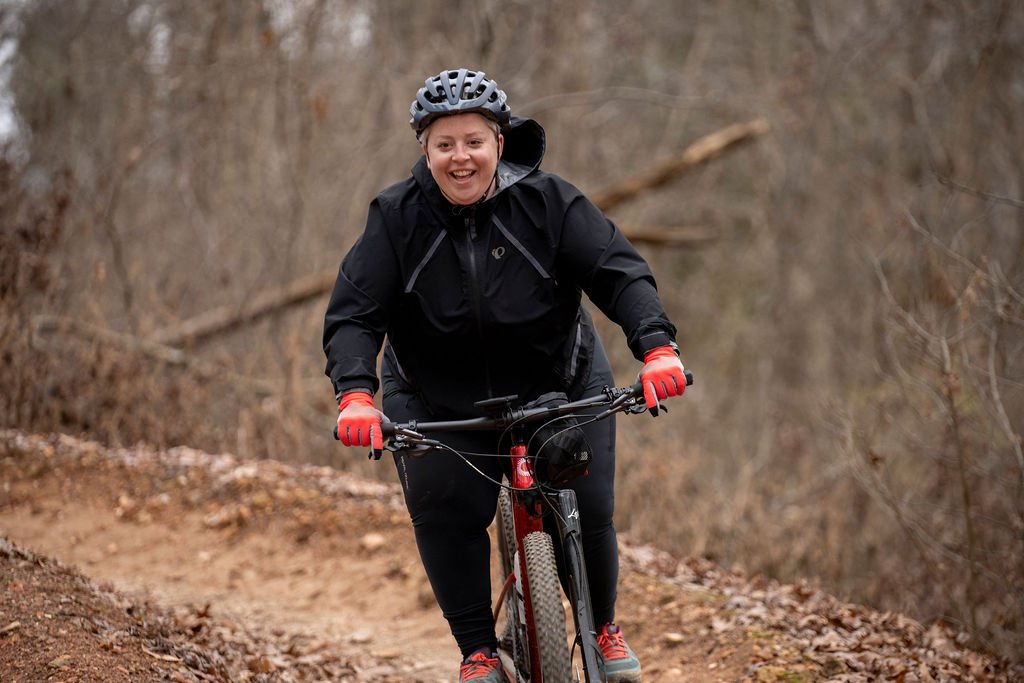Biking has been on the rise since COVID-19, and people of all backgrounds have been taking part in the fun. For people who don't fit the thin ideal, though, getting into the saddle can be intimidating at best, and impossible at worst.
"When I started biking, I was riding with a group that was not inclusive at all, I would often be left behind," said Marley Blonsky, founder of the organization All Bodies on Bikes and a self-proclaimed fat cyclist. At a recent webinar for the virtual "Cycling With" Summit, Blonsky explored how those non-inclusive spaces acted as a catalyst for her to launch her organizations which aims to promote more inclusive rides for people of all sizes.

Today, fourteen chapters of "All Bodies on Bikes" exist in different U.S. cities, and Blonsky is recognized as an influential voice in mobility justice. When she first started to bike, though, she would go to bike rides where no one would talk to each other, and she would often be left behind.
Now when she leads rides of her own, Blonsky prioritizes being communicative and welcoming, making sure that all bikers know beforehand how many miles they'll go, if they need to bring anything, and how many stops to expect. She also emphasizes that her rides are a body-neutral zone.
"We're not talking about weight gain, weight loss. We're not earning our end of the ride slice of pizza,” she said.
Outside of group rides, Blonsky fights against the thin ideal in the larger bike industry, too. During the webinar, she described experiencing cracked saddles or broken spokes when she would ride on bikes that weren't designed for her body, or which had strict weight limits that weren't explicitly and clearly explained. Those omissions, she says, can be unsafe for bikers, in addition to making them feel like riding isn't for them.
For Blonsky, though, those kinds of challenges also sparked a movement. She had the idea to create the organization All Bodies on Bike when she met Kailey Kornhauser, who rode a thousand miles across Alaska. But she didn't have a raincoat during the ride because the brand that sponsored her did not make one in her size.
All Bodies on Bikes grew to encompass bike rides for non-traditional athletes after Blonsky went to a gravel event in Colorado called Steamboat Gravel and met the Ride for Racial Justice group.
"I saw the power of the community being together in the representation and how much stronger their messaging was when they had a group of people," she said. "[I thought:] What if we did this for fat people? What if we brought a group of 10, 15 people to a gravel event and had that representation there?"
Today, Blonsky is also known as a digital content creator — though she says sometimes, it's hard to put herself out there online, especially as her body changes over time and draws strong opinions from followers. She gets DMs on Instagram from people asking about how she's lost weight, though her answer is always clear: "My body is none of your business, and my weight is none of your business."
"I have always said bodies are meant to change, and so right now I'm in a smaller body than I ever have been before," she adds. "But it hasn't been an intentional weight loss journey for me."
Instead of focusing on size, Blonsky tries to practice gratitude towards her body. As she gets into her forties, she is having arthritis in her knees and can't bike as much as she would like. Still, she says her body is a tool for achieving the things she wants to do — nothing more, nothing less.
"I just try to be grateful for the body that I do have, regardless of what it looks like," she said.
Blonsky emphasized that this attitude, which she calls "body neutrality," has helped her break free of the downsides of the "body positivity" movement. She argues that body positivity, which tells us to love every part of our bodies, is unrealistic; treating the body as an independent entity, though, can help us navigate times when the body may be changing, and empower us to still take care of ourselves and love ourselves, even when we're not satisfied with how our bodies look or function.
"I can be frustrated with my knee, and I can be frustrated that my neck hurts because I have large breasts, but it doesn't change the way I feel about myself as a person or my self-value and my self-worth," said Blonsky.
Blonsky also hopes to extend the "body neutrality" framework to clothing companies in the cycling space, many of whom suffer from internalized fatphobia and are not booking fat models or offering larger sizes. She even encouraged outdoor backpack and travel gear brand Osprey to review their entire line of packs and offer extended fits up to 70 inches; another clothing brand she partnered with now offers cycling gear from double zero to XXXL.
"I am trying to ensure that people who lead the marketing campaign understand that fatphobia is ingrained in all of us, just like racism and all of these different things," said Blonsky.

Almost ten years after offering her first size-inclusive bike rides in 2016, Blonsky is looking to the future. She someday hopes to ride the Tour Divide, which takes cyclists from British Columbia all the way to the border between New Mexico and Mexico. In the meantime, though, she's savoring any time she can get in the saddle.
“Every time I'm on a bike, it's kind of dream,” she said.






